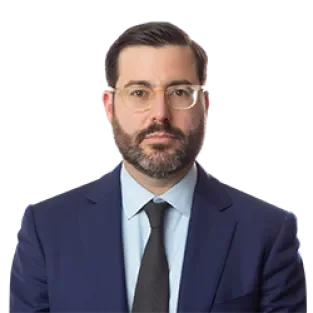ASAP
The European Union's Second-Highest Court Highlights the Importance of Hiring Outside Counsel
Last week, the European Union (EU) Court of First Instance held that documents exchanged between an in-house attorney and corporate client were not protected under the attorney-client privilege. The decision highlights the prevailing rule in EU law that communications between in-house attorneys and their clients are not protected under the "legal professional privilege," as the doctrine is known in the EU.
The decision, Joined Cases T-125/03 and T-253/03 Akzo Nobel Chemicals and Ackros Chemicals v. Commission ("Akzo"), involved documents uncovered and obtained by the Commission of the European Communities ("Commission") in a price-fixing investigation. The court held that the documents were not privileged, but also clarified how Commission officials must handle contested materials. The decision highlights the contrast between EU and American law, which allows much broader protections for communications between in-house counsel and corporate clients, and demonstrates the vital importance of hiring outside counsel to assist in corporate issues under EU law, certainly in antitrust law and for careful practitioners, in other areas such as employment matters.
The US Privilege Rule as Contrasted with the EU Privilege Rule
In the United States, communications between in-house counsel and corporate employees are generally privileged if:
- the communication was made to in-house counsel for the purpose of obtaining legal advice;
- the communication concerned matters that are in the general scope of the corporation employee's duties;
- the employee involved is adequately aware that his or her statements are being provided for the purpose of obtaining legal advice for the corporation; and
- the communication must be made and kept confidential by the corporation.1
Courts also look to two additional tests in assessing privilege claims. One test focuses on whether the communication was made to a member of the corporation's "control group," those with the ability to take action on behalf of the corporation based on the attorney's, as opposed to business, advice.2 The second test focuses primarily on whether the communication was sought for the purpose of seeking and rendering legal advice on behalf of the corporation.3
In contrast, the EU applies what it calls the "legal professional privilege" only where:
- the communication is made exclusively for the purpose of seeking legal advice; and
- the communication is made with an "independent" lawyer.4
Thus, under EU law, communications are considered privileged only if made exclusively for the purpose of obtaining legal advice from an attorney who is not employed by the corporation. Although Akzo involved an investigation into anti-competitive activities, this decision should be considered applicable to the attorney-client privilege in employment and other contexts as well.
As the Akzo court acknowledged, EU member states follow different rules concerning the privileged status of communications to in-house counsel. In Germany, for example, communications with in-house counsel are afforded protection similar to those under American law. In Italy, by contrast, in-house attorneys are required to relinquish their status as members of Italy's Bar, which effectively prevents any privilege from attaching to their communications. The Akzo court used this split among the various EU member states to reject the company's argument that Netherlands law (where in-house communications are privileged) should apply.
The Akzo Decision
In February 2003, Commission officials and colleagues from Britain's Office of Fair Trading began an investigation of Akzo Nobel Chemicals Ltd. and Ackros Chemicals Ltd. (the "Company"), seeking evidence of alleged price-fixing activities. During the investigation, Commission officials uncovered two sets of documents that the Company claimed were covered by privilege. Set A, as defined by the court, consisted of two copies of an internal memorandum drafted by a Company General Manager to superiors for the purpose of obtaining outside legal counsel in connection with EU competition law compliance. The second set of documents, Set B, contained the same General Manager's handwritten notes used to prepare the Set A memorandum, as well as two emails between the General Manager and the Company attorney responsible for coordinating Company compliance with EU Competition law.
The Company and Commission officials engaged in lengthy conversations regarding the privileged status of the documents. As to Set A, the Commission concluded that it could not determine definitively whether the documents were indeed privileged, so the Commission placed copies of the documents in a sealed envelope. As to Set B, the chief investigator determined that the documents were not privileged and accordingly included copies of Set B in the investigative file. The Company challenged the Commission's actions, arguing that the Commission broke protocol by reviewing privileged documents over the Company's objections, summarily rejecting the Company's privilege claims, and failing to isolate the Set B documents. The Company also argued that all the documents at issue were privileged.
The court agreed that the Commission broke protocol by: (1) forcing the Company to allow it to do a cursory review of Set A and Set B; and (2) reading the documents contained in Set B without a Court of First Instance decision authorizing their review. Despite the breach of protocol, the court held for the Commission because it concluded that the documents were not privileged. As to Set A, the court began by acknowledging that certain "preparatory documents" created by the corporation to summarize relevant facts to an attorney for the exclusive purpose of seeking legal advice may be privileged. The court also held that these preparatory documents may be privileged even if the documents were never shared with an attorney, or were not made with the purpose of being physically sent to an attorney.
Despite this acknowledgement, the court held that the two internal memorandums comprising Set A were not privileged because they were not made for the "exclusive purpose" of obtaining legal advice or consultation. In making this determination, the court noted the following:
- the memorandum was addressed to the General Manager's superiors, not a lawyer;
- the memorandum made no mention of the fact that it was made for the purpose of obtaining legal advice or that it was created to assess the Company's compliance with EU competition law; and
- the Company violated its own internal compliance program requiring it to communicate competition law issues with outside counsel both orally and in writing.
As to Set B, the court apparently acknowledged that the emails between the General Manager and the Company attorney would have been privileged had the attorney not been a Company employee. The court reasoned that because an in-house attorney is necessarily beholden to his employer, and that an in-house counsel's objectivity will always be tainted by the employment relationship, communications between in-house counsel and corporate employees should not be deemed privileged.
Lessons Learned
The first clear message from the Akzo decision is the vital importance of involving outside counsel when dealing with EU antitrust issues, and other laws as well. The Company had argued that withholding the attorney-client privilege undercuts in-house counsel's ability to provide frank and effective counsel on complex legal issues. In response, the court urged companies to utilize outside counsel and wrote:
[T]he fact remains that such exercises of self-assessment and strategy definition may be conducted by an outside lawyer in full cooperation with the relevant departments of the undertaking, including its internal legal department. In that context, communications between in-house lawyers and outside lawyers are in principle protected[.]
Accordingly, the safest means by which to protect communications under the EU's legal professional privilege is to ensure that the communication is clearly intended for outside counsel, or prepared in anticipation of obtaining outside legal counsel.
Although the Akzo decision involved an EU antitrust issue, the decision stresses the importance of utilizing outside counsel when dealing with in-house legal issues that may ultimately lead to an outside investigation or litigation. This instruction appears particularly important for EU employers dealing with any employment or labor law issue governed by EU law. Thus, EU employers should be particularly careful when confronted with disputes regarding EU directives or regulations addressing employee works councils, employee health and safety, maximum working hours, or equal pay.
The second lesson from the Akzo decision is the court's instructions regarding the proper procedure for drafting materials that an employer wishes to keep privileged. Again, the Akzo court specifically held that documents prepared by nonattorneys may be privileged if they are created for the exclusive purpose of obtaining outside legal counsel. Along those lines, and using the Akzo decision as a guide, EU employers should consider the following when drafting such documents:
- clearly state that the internal document(s) was created for the exclusive purpose of obtaining outside legal counsel;
- address the document to an attorney;
- if possible, this information should also be separate from the substance of the document to avoid any inadvertent disclosure if the Commission conducts a cursory review of the contested materials; and
- determine whether they have an internal policy requiring that certain issues be exclusively shared with outside counsel, and determine whether the document is apparently in compliance with that policy.
Although taking the foregoing steps will not ensure that certain materials will remain privileged, the foregoing should help ensure that arguably privileged documents remain protected, in addition to protecting against inadvertent disclosure.
Finally, the decision provides EU employers with a clearer view of their rights and responsibilities in the event that they are ever under outside investigation. In such instances, and based on the Akzo court's holdings, EU employers should provide only the following information to the Commission about materials they seek to protect:
- the author of the document;
- the intended recipient;
- the duties and respective responsibilities of the document's author and intended recipient; and
- the context and purpose for which the document was created.
Employers should also be firm in refusing to allow a cursory review of documents where such a review would disclose the substance of privileged communications. If an employer provides this preliminary information, and the Commission cannot determine if the materials are privileged, the matter will be presented to the court of First Instance. The contested materials cannot be reviewed by the Commission, and must be kept in a sealed envelope. Again, although the Commission in Akzo was investigating price-fixing allegations, it is wholly possible that taking the foregoing steps is appropriate in other contexts.
Without addressing the merits of the court's decision, it is clear that EU employers wishing to protect communications regarding EU antitrust issues, and other EU legal issues, should involve outside counsel in those communications. Looking forward, it will be interesting to see what effect this decision has on the application of the attorney-client privilege in other contexts, or even on the law of the individual EU member states.
1 Upjohn Company v. United States, 449 U.S. 383 (1981).
2 See e.g., Consolidation Coal Co. v. Bucyrus-Erie Co., 89 Ill. 2d 103, 106 (Ill. 1982).
3 National Tank Co. v. Brotherton, 851 S.W.2d 193, 197 (Tex. 1993).
4 Akzo, referencing Case 155/79 AM & S v. Commission.
Eric A. Savage is a shareholder in Littler Mendelson's Newark office. Michael G. Congiu is an Associate in Littler Mendelson's Chicago office. If you would like further information, please contact your Littler attorney at 1.888.Littler, info@littler.com, Mr. Savage at esavage@littler.com, or Mr. Congiu at mcongiu@littler.com.



